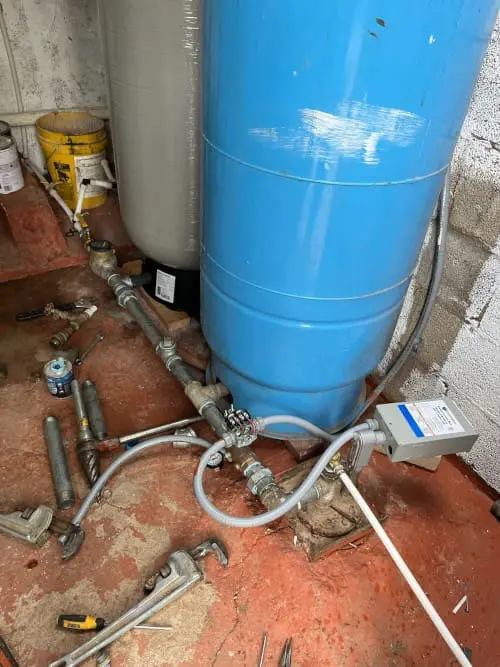Frequent Water Well Water Issues and How to Fix Them – Part One

One of the first rules of owning your own private well, or even getting your water from a city that has its own well, is it tends to make you a little bit paranoid.
After all, well water isn’t subject to any municipal water treatment. So it’s hardly surprising that you’re on edge when you don’t know what’s going to flow out of your tap.
What are we going to experience next in the well water – tings strange colors, rancid smell, lack of taste? That’s enough to break a sweat for anyone!
Luckily, there’s a solution for every well water issue. Here’s a rundown of common well water problems we’ve seen most often, with how to address them.
Is Well Water Safe to Drink?
Let’s be frank. Drinking well water can be nerve-wrecking, especially when you have an inkling that it could be dangerous to your health!
The good news is that, for the most part, well water is safe to drink. The water is tapped from natural aquifers, which typically don’t hold any life-threatening pathogens.
The important word there is “usually.”
Sadly, we can never know 100% if well water is safe to drink. Since it is underground, you never know what natural or human-induced contaminants might filter into the water. And, as we will see below, those contaminants can create serious issues for homeowners.
Regularly testing well water at an EPA-certified testing facility is the only way to know for sure that it’s safe to drink. Testing it at least once per year will allow you to adjust to any new pollutants getting into your aquifer.
Next, you need to invest in a reliable water filter such as a whole house reverse osmosis system. Reverse osmosis filters can remove many types of contaminants. And it never hurts to have another layer of protection.
My Dishes Are Getting a White Film From Well Water. Why?
If so, you have probably also wondered:
- Why are my clothes looking dingy or faded after they’re washed?
- Why does my hair turn dry and brittle according to my skin after a shower?
- Why is my water pressure so low?
The common cause of all these issues is hard water.
Hard well water has high levels of calcium and/or magnesium. These elements don’t threaten major health risks, but they can create expensive headaches for homeowners.
Take the extra money that homeowners typically spend on dish soap because they use more of it trying to scrub off the white film. They also tend to spend more on new clothes as old stuff discolors. And perhaps, if we are lacking, we will be stuck with the expensive plumbing bills, when the left-over calcium and magnesium clogs up the plumbing!
Those additional expenses further create further headache and ultimately make it very worthwhile to pursue a trusted solution.
A water softener is the best long-term solution for this issue. Softeners remove the calcium and magnesium, leaving water that won’t haze your dishes, dry your skin or destroy your plumbing. That sounds like a solid investment to us!
Why Do the Water Smell Like Rotten Eggs?
Country living is pleasant. What’s less pleasant is the rotten egg smell that often afflicts country homes with well water. Where does the smell even come from?
That answer probably lies with one of two sources: iron bacteria or hydrogen sulfide. When these contaminants seep into an aquifer in sufficient quantities, it can definitely lead to a stinky shower.
So which is the one giving your water a foul smell? An EPA-certified water test can tell you whether it’s iron bacteria or hydrogen sulfide.
If iron bacteria are the cause, then you need to chlorinate. You can shock chlorinate your well, or you can install a chlorine injection system. A chlorine injection system is basically your own water tower for your well. It takes the well water, passes it through a tank where it’s dosed with chlorine and then filters out the excess chlorine. The result is tap water that you can happily drink!
If hydrogen sulfide makes the smell, however, then the fix is a little bit more involved. It involves disinfecting the well and buying a specialty filter to get the hydrogen sulfide out for good.
An experienced professional will help you decide on the best kind of filter to accommodate your well.
Final Thoughts
We hope we’ve helped you solve some of your water problems with well water. Of course, we understand that this is not an exhaustive list of the issues facing you in this field. Hire a water treatment expert to find the best solution for water well water treatment problems.